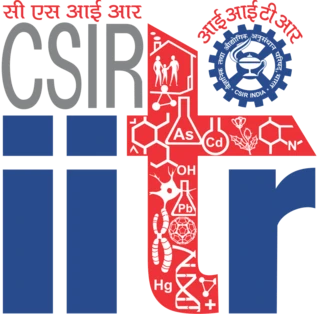Overview
Having been established on November 4, 1965, by the Government of India, as the sole researcher of Toxicology in India, the constituent laboratory Indian Institute of Toxicology Research comes under CSIR or Council of Scientific and Industrial Research. It is the only institution in India which is contributing to the research and innovation in toxicology. CSIR-IITR has brought a transformation in the research methodology of toxicology from classical studies of animal experimentation to the post-omic and art-omic technologies in their disciplinary areas of chemistry, biology, physics, and mathematics. Food safety, systems toxicology, translational research, environment & health safety, GLP/NABL toxicity profiling, nanotoxicology, research for policy, computational predictive toxicology, and service to the industry are the Navaratna, the nine components of CSIR-IITR.
Academic Performance
IITR is a laboratory conducting various research programmes. They only offer Ph.D. programmes and some short-term training. After completing their M.Sc. by majoring in Biotechnology, Biochemistry, Life Science, Genetics, etc. and B.Sc. & B.Tech. in Biotechnology, they can apply to these programmes. They also have to qualify JRF from CSIR, ICMR, UGC, or any other organisation. The institution offers Ph.D. in chemical and biological sciences with the following five major R&D areas – Environmental Toxicology, Food, Drug & Chemical Toxicology, Nanomaterial Toxicology, Regulatory Toxicology, and Systems Toxicology and Health Risk Assessment. They also provide short-term training to the students pursuing their Post-graduation from reputed Universities to take any of the five major R&D areas (Nanomaterial toxicology, Food, drug & chemical toxicology, Environmental toxicology, Systems toxicology & health risk assessment, Regulatory toxicology) of the institute and work according to it.
Research & Development
Being the epicentre of research on toxicology in India, IITR laboratories have conducted and concluded many research projects and have developed a few drugs. Some research projects were “Integrated NextGen approaches in health, disease, and environmental toxicity” or INDEPTHin which the principal investigator was Dr. Devendra Parmar, and “Nanomaterials: Applications and Impact on Safety, Health and Environment” or NanoSHE in which the principal investigator was Dr. D. Kar Chowdhuri. CSIR-IITR is the Central Laboratory for the research projects namely – “Environmental Contaminants: New Screening Technologies and Effect on Human Health”, and “Toxicogenomics of Genetic Polymorphism in Indian Population to Industrial Chemicals for the Development of Biomarkers”, and, it is a participating laboratory in various other projects.
Placement
CSIR-IITR does not conduct campus recruitment but the name of the institution in anyone’s resume can speed up the recruitment process in any national or international organisation. After being associated with such a reputed organisation and gaining knowledge through various research projects make you more capable.
Notable Alumni
Dr Ruchi Gera a Ph.D. scholar (2013-18) is currently a postdoctoral associate at Yale University, school of medicine immunobiology department. Dr. Radha Dutt Singh, a Ph.D. scholar (2012-17) is currently a postdoctoral fellow in the department of physiology and pharmacology at Libin Cardiovascular Institute of Alberta University of Calgary. Dr. Deepak Gurbani, a Ph.D. scholar (2007-12), and Dr. Abhishek Kumar Singh, a Ph.D. scholar (2008-13), are both assistant professors at Amity Institute of Neuropsychology and Neurosciences, Amity University in Uttar Pradesh. Dr. Sharad Kumar, a project fellow (2011-16) at CSIR-IITR is now an executive at Zydus Cadila Healthcare Limited, R&D VTC.

